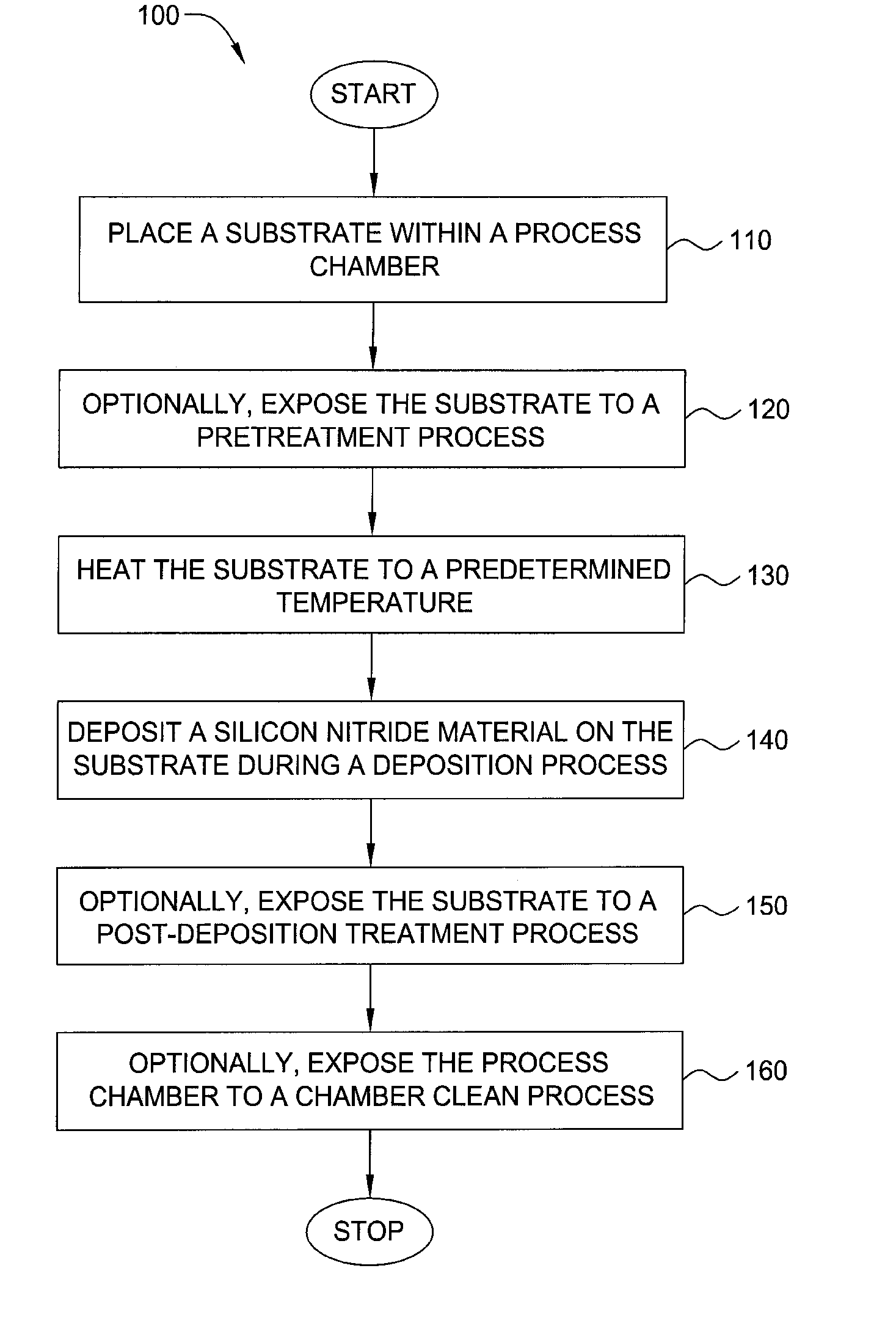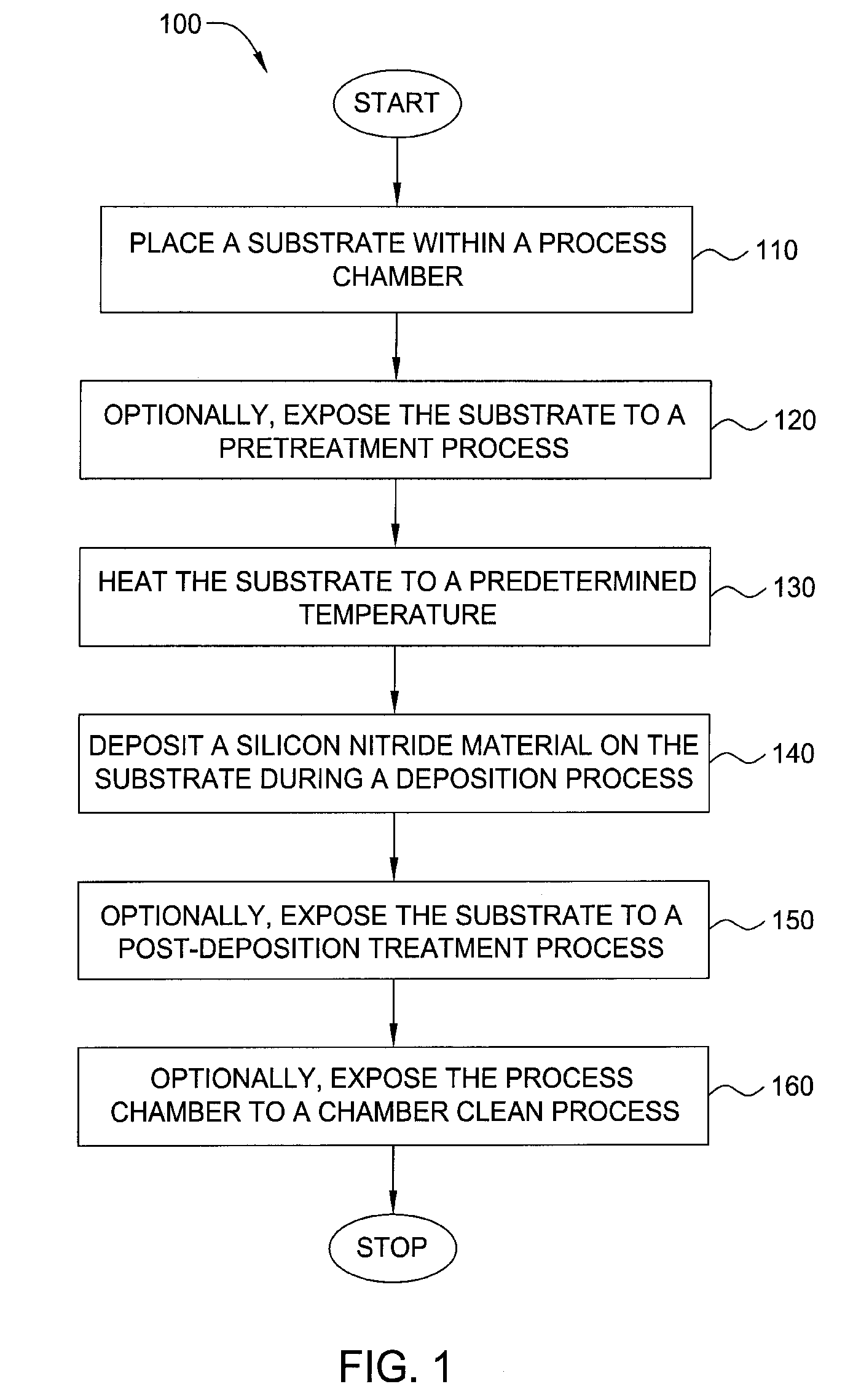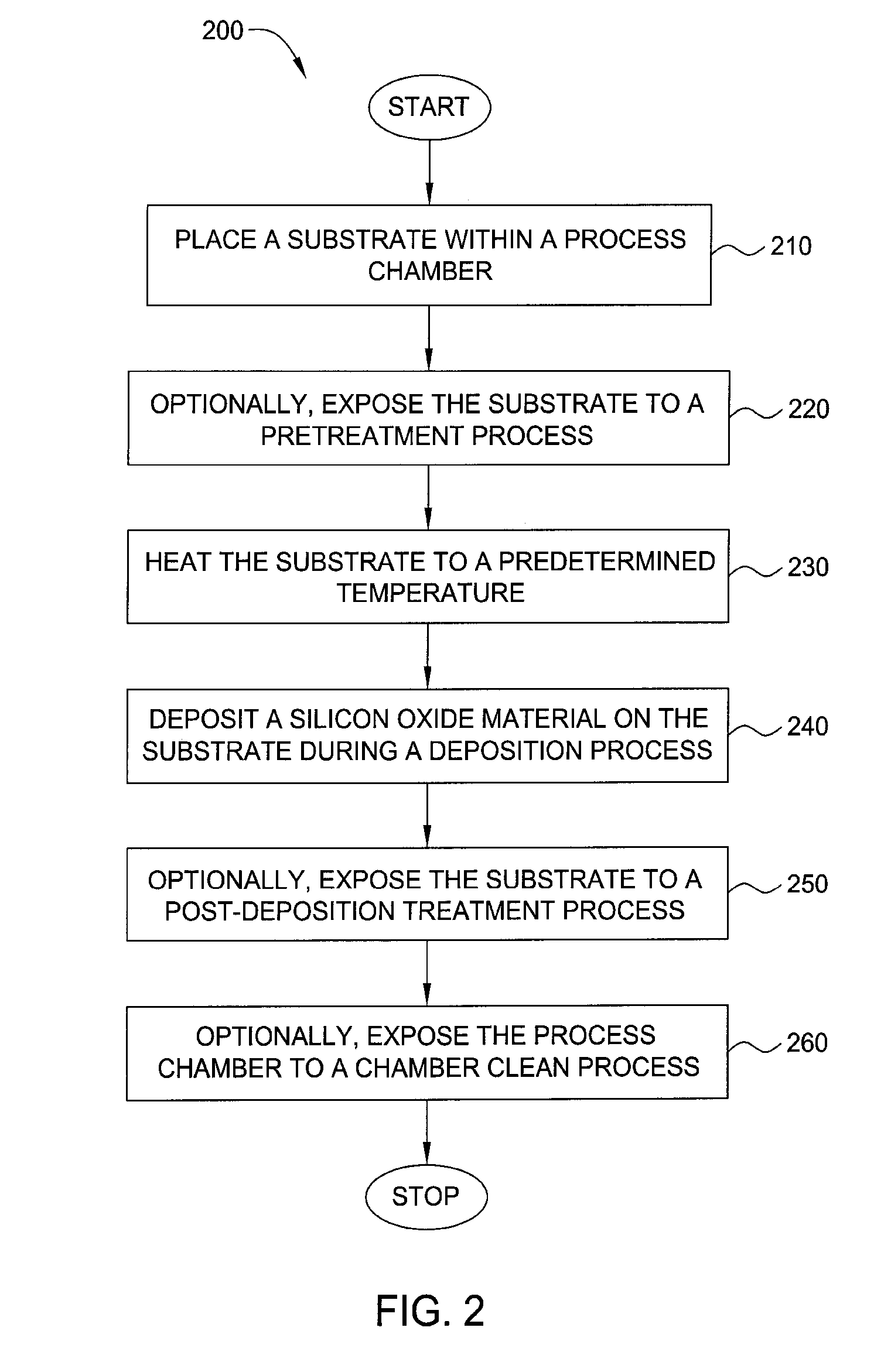Method for forming silicon-containing materials during a photoexcitation deposition process
a technology of photoexcitation and deposition process, which is applied in the direction of polycrystalline material growth, crystal growth process, chemically reactive gas, etc., can solve the problems of inconvenient commercial fabrication, low inability to meet the requirements of large-scale semiconductor device fabrication, etc., to improve the excitation efficiency of precursors, improve the cleaning process of chambers, and increase the excitation energy of precursors
- Summary
- Abstract
- Description
- Claims
- Application Information
AI Technical Summary
Benefits of technology
Problems solved by technology
Method used
Image
Examples
Embodiment Construction
[0036] Embodiments of the invention provide a process for depositing a silicon-containing material onto a substrate. Silicon-containing materials include silicon oxide, silicon nitride, and silicon oxynitride, as well as silicon materials that may contain germanium, carbon, dopants, or combinations thereof. Many of the embodiments described herein are advantageously performed utilizing temperatures of less than about 550° C. Although some examples of the processes are described with reference to a single wafer thermal-chemical vapor deposition chamber (e.g., process chamber 1100 illustrated in FIG. 7), other processes may be beneficially practiced in other deposition systems, such as a batch chamber. Process chambers which may be used during the deposition processes as described herein include a SINGEN® Plus chamber and a POLYGEN™ chamber, each available from Applied Materials, Inc., located in Santa Clara, Calif. An excimer, such as a Xe-excimer, may be integrated into theses proce...
PUM
| Property | Measurement | Unit |
|---|---|---|
| Energy | aaaaa | aaaaa |
| Energy | aaaaa | aaaaa |
| Energy | aaaaa | aaaaa |
Abstract
Description
Claims
Application Information
 Login to View More
Login to View More - R&D
- Intellectual Property
- Life Sciences
- Materials
- Tech Scout
- Unparalleled Data Quality
- Higher Quality Content
- 60% Fewer Hallucinations
Browse by: Latest US Patents, China's latest patents, Technical Efficacy Thesaurus, Application Domain, Technology Topic, Popular Technical Reports.
© 2025 PatSnap. All rights reserved.Legal|Privacy policy|Modern Slavery Act Transparency Statement|Sitemap|About US| Contact US: help@patsnap.com



